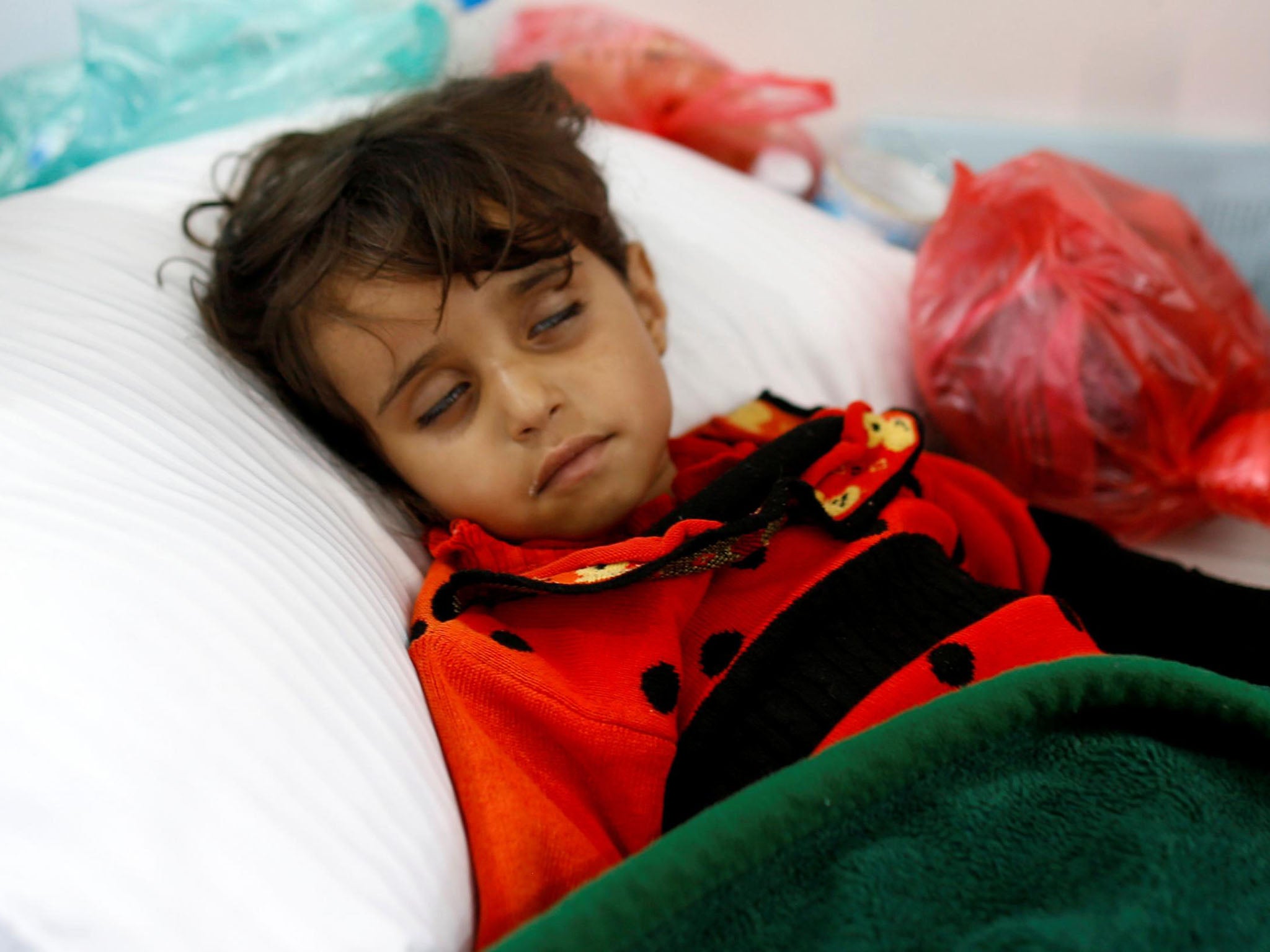Cholera vaccine probiotic drink could tackle deadly epidemics in disaster zones, finds study
Neutered-form of disease causing bacteria compete for available nutrients and prevent deadly bugs causing harm

A drinkable cholera vaccine containing live bacteria, in the same manner as a probiotic yoghurt drink, could potentially help save thousands of lives in disaster zones.
The disease kills millions each year and fast-acting strains can re-emerge with devastating results when a natural disaster or civil war destroys sanitation infrastructure.
Conventional vaccination approaches can take weeks to be effective because the immune system needs to acclimatise.
But the new approach could provide protection within 24 hours.
While it has yet to be tested in humans, the results in trials on rabbits suggest it has the potential to save lives.
“We think this is going to be a very good vaccine, and could induce immunity after a single dose,” the study’s lead investigator Professor Matthew Waldor from the Howard Hughes Medical Institute at Harvard Medical School.
His team tracked down a toothless relative of the cholera bacteria responsible for a major outbreak in Haiti in 2010.
They further neutered the microbe, known as vibrio cholera, to prevent its ability to produce toxins in the gut or pick up new DNA from its fellow bacteria that could make it more deadly.
“We have many different engineering steps to make this an incredibly safe, genetically stable, live vaccine,” Professor Waldor added.
Floodwaters bring risk of cholera to compound misery of the displaced
Show all 4The study, published in the journal Science Translational Medicine today, found that rabbits infected with the cholera vaccine did not get sick a day after being vaccinated.
This is despite their immune systems not having had a chance to build a full picture to ward off future cholera invaders.
Testing this response in a cholera outbreak in a population of around 100,000 people, the study found a vaccine that worked this fast could prevent thousands of extra people being infected.
The Harvard team do not fully understand why it works this fast, but it could be the vaccine’s bacteria suppress the deadly strains competing for the same resources, or perhaps interfering with their toxin production.
The complex interactions of our gut bacteria and our health are already marketed in every day probiotic yoghurt drinks, which claim to load the body with “good bacteria” and the vaccine works similarly.
“It’s a living therapeutic that has good effects on health,” said Professor Waldor.
The team are now looking to move towards human trials to test its safety, and are considering how this living colony of bacteria can have its shelf life extended to make it useful in disaster zones where it is needed.
Children and people who already unwell are particularly hard hit by the infection, which lodges the small intestine causing diarrhoea and vomiting that can lead to fatal dehydration and spreads the bacteria further.
In Yemen, currently in its third year of civil war, a child dies every ten minutes from cholera and a fresh warning of the disease’s resurgence was issued as the rainy season begins and inadequate sewage systems overflow again.
The outbreak’s death toll exceeded one million last year and the is on track to be the worst in history.
Subscribe to Independent Premium to bookmark this article
Want to bookmark your favourite articles and stories to read or reference later? Start your Independent Premium subscription today.

Join our commenting forum
Join thought-provoking conversations, follow other Independent readers and see their replies